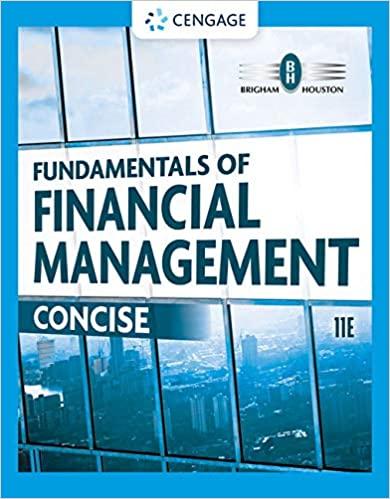Question
1.Under each of the two alternative proposals, what is the effective cost of foregoing the available discount for early payment. If potential credit customers can
1.Under each of the two alternative proposals, what is the effective cost of foregoing the available discount for early payment. If potential credit customers can borrow from local banks at 7% or less, should they pass up the opportunity to take the discount?
2.If a customer passes on the discount under either proposal, what does this imply about the customer's financial position?
3.Evaluate the two proposals. Should either proposal be accepted, or should the company continue with its present terms?
-Pro Forma (Projected) Income Statement and Balance Sheet data shown in Exhibit 1 are based on projected figures for 2018 if no credit policy change is implemented
1.If neither proposal is attractive, what other actions could Campagnola take to improve on its collections?
2.If any proposal that might reduce Sales were to be implemented, what other costs/problems might be considered?
Campagnola products, a wholesaler of ethnic food products, has seen a steady increase in its Average Collection Period (ACP), and an increase in bad debt losses over the past couple of years.
Management has decided to address this problem by considering a change in its credit terms that are expected to improve collection times and also reduce bad debt losses.
Currently, Campagnola provides trade credit on terms of n/60. While the majority of customers pay (on average) in the allowed 60 days, about 40% of customers are paying 10 days late. Bad debt losses, which once averaged about 1%, have risen to 2% on average.
A management consultant, hired by Campagnola, has recommended two possible changes to the credit terms.
Proposal A:Offer a discount of 1% for early payment in 10 days (Terms of 1/10, n/60) Proposal B:Offer the discount, but reduce the net payment time (Terms of 1/10, n30)
If Proposal B is accepted, it is assumed that Sales will decrease by 8% relative to what is expected under the existing policy; changes in Inventory are assumed to be proportional to changes in Sales. If Proposal A is accepted, no reduction in Sales is expected. Under either proposal, bad debt losses are expected to go back down from 2% to the 1% seen in earlier years. If either proposal is accepted, it is expected that 50% of all customers will take the discount and pay in 10 days. Among those who do not take the discount, it is assumed that 60% will pay on time and 40% will pay 10 days late.
Campagnola has a Cost of Capital of 11.2%
Exhibit 1 - Pro-Forma Income Statement and Balance Sheet, 2018
Income Statement
Sales
$1,170,000
COGS
$760,500
Gross Profit
$409,500
Fixed Expenses
$187,200
EBIT
$222,300
Interest Expense
$33,800
EBT
$188,500
Income Tax
$75,400
Net Income
$113,100
Balance Sheet
Cash
$52,000
Accounts Payable
$83,200
Accounts Receivable
205,150
Notes Payable
156,000
Inventory
156,000
Total Current Liab.
239,200
Total Current
413,150
LTD
208,000
Equity
485,950
Total Assets
$933,150
Total L&E
933,150
Step by Step Solution
There are 3 Steps involved in it
Step: 1

Get Instant Access to Expert-Tailored Solutions
See step-by-step solutions with expert insights and AI powered tools for academic success
Step: 2

Step: 3

Ace Your Homework with AI
Get the answers you need in no time with our AI-driven, step-by-step assistance
Get Started


